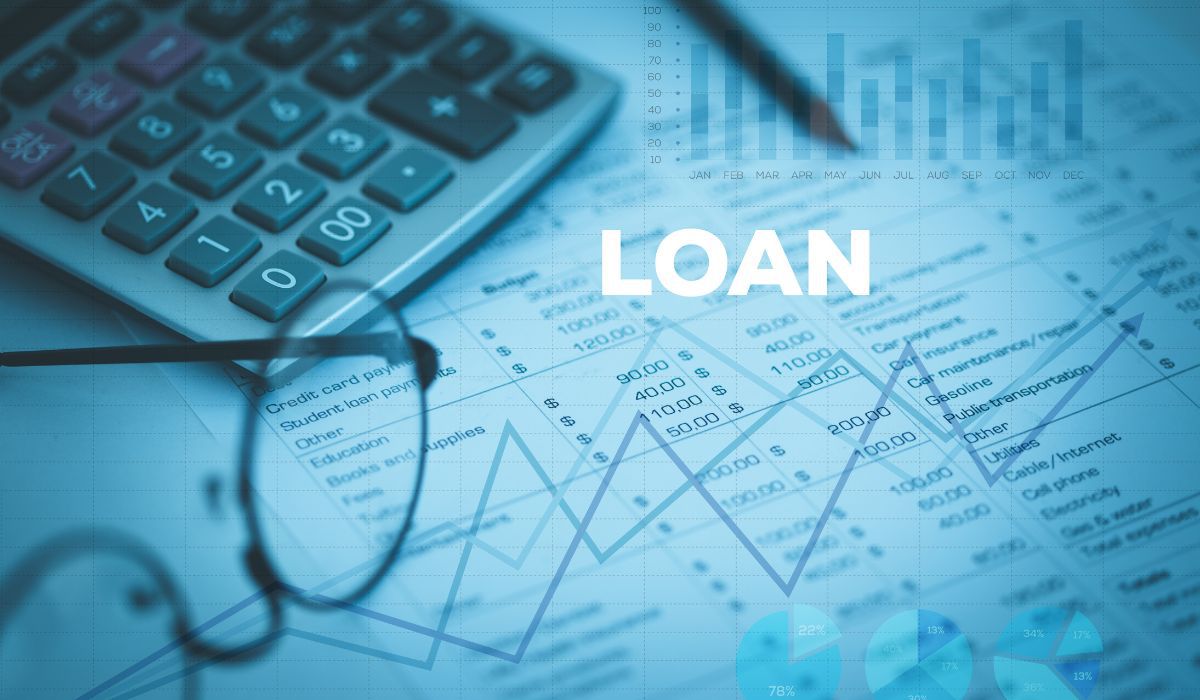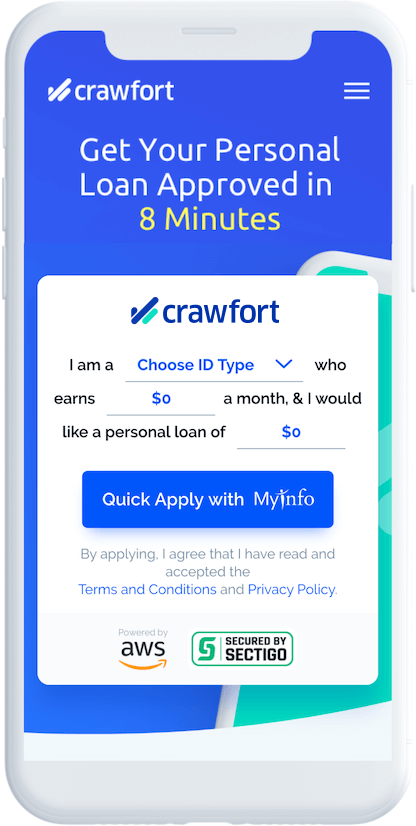Best Personal Loan Singapore: The Ultimate Guide (2024)
Best Personal Loan Singapore: The Ultimate Guide (2024)

Getting a personal loan in Singapore might be a good option for you. It can help you achieve your financial goals.
But before you jump in and apply for a low interest loan, let’s take a closer look. We’ll see if a personal loan is the right fit for you and your financial situation.
What is a Personal Loan?

In Singapore, a personal loan is a way to get money quickly without putting anything up as collateral. Collateral is something valuable you own, like a house or car that a lender can take if you don’t repay the loan.
Unlike a secured loan, where the lender can seize your house if you miss payments, a personal loan doesn’t work that way. The lender can’t take your stuff if you can’t pay.
How do Personal Loans Work in Singapore?
When you get a personal loan in Singapore, you’ll receive a one-time payment upfront, like a fixed amount of cash. This amount is based on how much the lender approves you for.
But here’s the catch: you don’t just pay back the original amount. You’ll also be charged interest and possibly other fees. The entire sum, including interest and fees, needs to be repaid within a specific timeframe set by the lender.
Most personal loans, like installment loans, come with fixed interest rates and repayment periods. This means you’ll make fixed monthly payments over a set number of months or years. These payments are typically designed to cover both the interest and the original loan amount (principal). This is called amortisation, and it helps you budget for your repayments because the amount stays the same each month.
Do You Really Need a Personal Loan?
Personal loans can be a helpful tool, especially when you need a quick injection of cash for a larger expense. Even though you’ll repay it over time, it can be a good option to cover short-term needs.
But before you jump in, make sure you can afford the repayments.
Here are some situations where a personal loan might be useful:
Emergencies: Unexpected medical bills or family crises can hit hard financially. Even with some savings, you may need extra help. A personal loan can provide a cushion during these emergencies and give you time to get back on track.
Weddings and Vacations: Considering a personal loan to help finance your dream wedding or a much-needed vacation? It can be tempting, especially with Singapore’s wedding costs. Just remember to be responsible with your spending.
Debt Consolidation: Struggling with credit card debt? A personal loan can be a way to consolidate your debt into one lower-interest payment. However, this is only a temporary solution. Make sure you develop healthy spending habits to avoid future debt.
Education Expenses: Need help covering tuition fees or textbooks? A personal loan can be an option for students.
Debt Consolidation: A personal loan can also be used to consolidate multiple debts into a single, more manageable monthly payment. This can simplify your finances and potentially get you a lower interest rate.
Remember, interest rates and loan terms will depend on your income and other factors. Shop around and compare rates and terms offered by different banks and lenders in Singapore before you commit.
Things to Consider Before Taking a Personal Loan in Singapore
Before you dive into applying for a personal loan, it’s important to understand what you’re getting yourself into. While it’s a fast way to access cash, you’ll also be charged interest.
Here’s the good news about personal loans:
- Fast Cash: Personal loans are a great option if you need money quickly, especially for emergencies. You can often get approved within a day to a week, and the application process typically requires fewer documents compared to other loans.
- No Collateral Needed: Unlike a mortgage, you won’t risk losing your house if you can’t repay the loan. Since it’s unsecured, it doesn’t require you to put up any asset as a guarantee.
- Fixed Interest Rates: The interest rate you’re charged is fixed for the entire loan term. This is different from credit cards, where interest rates can fluctuate based on your outstanding balance.
But There’s a Catch to Personal Loans
Like most things in life, personal loans have some downsides:
- High Interest Rates: Be prepared for higher interest rates compared to secured loans and even some credit cards.
- Age and Income Requirements: There are typically age and income limitations. In general, you need to be between 21 and 65 years old and have a minimum annual income of S$30,000. If you earn less, you might qualify but face even higher interest rates. Foreigners may require an even higher income (S$40,000 to S$60,000).
An Alternative for Lower Income Borrowers:
There are exceptions for borrowers with lower income. Licensed money lender Singapore like Crawfort may offer smaller loans (up to S$3,000 for Singaporeans/PRs and S$500 for foreigners) even with an annual income below S$10,000. However, be aware that these lenders typically charge much higher interest rates than banks.
| Annual income | Maximum loan amount | ||
|---|---|---|---|
| Singaporeans and Permanent Residents | Foreigners living in Singapore | ||
| Below S$10,000 | S$3,000 | S$500 | |
| S$10,000 to less than S$20,000 | S$3,000 | ||
| S$20,000 and above | 6 times of monthly income | ||
Before You Apply: Additional Considerations
Beyond the pros and cons, here are some important things to keep in mind before taking a personal loan in Singapore:
Plan for Repayment: Make sure you can afford the monthly payments, which include the loan amount, interest, and any fees. On-time payments build a good credit score. A good credit score shows lenders you’re a reliable borrower and helps you get better loan rates in the future. Missing payments can hurt your credit score and make it harder to get approved for loans later.
Manage Your Budget: It’s crucial to manage your finances responsibly, whether or not you have a loan. Create a budget and only borrow what you can realistically repay. Choose a repayment plan that fits your budget, whether that’s weekly or monthly installments. Sticking to your budget will ensure you can repay the loan on time.
Explore Alternatives: Consider if a personal loan is truly the best option. Could you borrow from friends or family instead? Talk to them about your situation and explain how you plan to repay them.
Banks vs. Licensed Moneylenders: Where to Get Your Personal Loan
So you’ve decided a personal loan is the way to go, but now you’re wondering: bank or licensed moneylender? Here’s a breakdown of the pros for using a licensed moneylender:
Fast and Easy Online Application: Many moneylenders now offer online applications. You can simply fill out a form with basic information like your ID type, salary, and loan amount. The process is usually quite straightforward. For example, Crawfort claims a 3-step process: apply through MyInfo, check results, and collect your loan.
Saves Time: With online applications, you don’t have to visit a physical office. This saves time and lets you apply from the comfort of your home, especially helpful if you need a loan urgently.
Fast Loan Approval: Many licensed moneylenders are known for their quick approvals, sometimes in just minutes. Crawfort again mentions an 8-minute approval process. This eliminates the long wait times you might experience with banks.
Easier Eligibility Requirements: Unlike banks with a minimum salary requirement of S$30,000, some licensed moneylenders may allow you to borrow even with an annual income below S$10,000.
Ideal for Urgent Needs: Emergencies happen. Unexpected accidents or disasters can leave you needing cash quickly. A personal loan from a licensed moneylender can be a lifesaver. You might even be able to collect your cash within the day, helping you address your immediate financial needs.
Lower Rejection Rate: Even with bad credit, your loan application may still be approved. Licensed moneylenders may focus more on your current ability to repay the loan rather than just your credit score.
Short-Term Loans: Licensed moneylenders often specialise in short-term loans. This can mean lower total interest paid compared to a long-term loan with a longer interest accrual period.
Read also: Ultimate Guide To Finding The Best Licensed Moneylenders In Singapore
Keep in mind, there are also downsides to consider when borrowing from licensed moneylenders. We’ll explore those in another section.
Downsides of Licensed Moneylenders
While licensed moneylenders offer some advantages, there are also drawbacks to consider:
- Lower Loan Max: The maximum amount you can borrow from a licensed moneylender is capped at 6 times your monthly salary. Banks, on the other hand, may allow you to borrow up to 10 times your monthly salary.
- Higher Interest Rates: The easier eligibility requirements come at a cost: higher interest rates compared to banks. But be careful! Avoid loan sharks (“Ah Longs”) who charge much higher, unregulated rates. Licensed moneylenders are capped at 4% interest per month by the Registry of Moneylenders. Understanding the difference between a licensed moneylender and a loan shark is crucial to avoid predatory lending practices.
Advantages of Banks
- Higher Loan Max: If you need a larger sum of money, banks are the way to go. They may allow you to borrow up to 10 times your monthly salary.
- Convenience of Online Applications: Many banks now offer online loan applications, saving you time and allowing you to apply from the comfort of your home.
Disadvantages of Banks
- Stricter Requirements: Since banks offer larger loans, they have stricter eligibility requirements. You’ll typically need a minimum annual income of S$30,000 and they’ll closely examine your credit score.
- Longer Approval Times: Banks take more time to process loan applications because they conduct a thorough credit evaluation. Approval may take days.
The best place to get a personal loan depends on your needs. Consider your annual salary and the amount you need to borrow. If your salary is below S$30,000, licensed moneylenders may be your only option. Remember, there’s a trade-off between fast approval and easy eligibility with higher interest rates. We’ll explore responsible borrowing practices in the next section.
Choosing the Right Personal Loan
So you’ve decided to take a personal loan in Singapore, but with so many options, how do you find the best deal? Here are some key factors to consider:
Interest Rate: This is a big one! For licensed moneylenders, the interest rate can’t be higher than 4% per month. Shop around to compare rates and find the lowest offer. For banks, focus on the Effective Interest Rate (EIR) which includes processing fees and other charges, giving you a truer picture of the total cost.
Loan Amount: Both banks and licensed moneylenders offer different maximum loan amounts. Banks can go up to 10 times your monthly salary, while licensed moneylenders are capped at 6 times. It’s important to borrow only what you can realistically repay. So, take a close look at your finances before deciding on a loan amount.
Repayment Schedule: Choose a repayment plan that fits your budget comfortably. Both banks and licensed moneylenders may offer flexible options. Be sure to read and understand the loan agreement carefully, especially regarding late payment penalties and fees. These can add up quickly and hurt your credit score.
Loan Tenure: Ideally, choose the shortest loan term possible to minimize interest costs. However, this needs to fit your budget. Pick a term you can comfortably afford to repay without straining your finances.
Remember: There’s a trade-off between fast approval and easy eligibility (licensed moneylenders) and potentially lower interest rates and higher loan amounts (banks). Choose the option that best suits your needs and financial situation.
Still Have Questions?
Here are some frequently asked questions to help you navigate your personal loan journey:
- Bad Credit Score? No Problem (Sometimes): While a bad credit score can make it harder to get a loan, some licensed moneylenders may have special offers for borrowers with low credit. Even if you qualify, it’s wise to start with a small loan amount and focus on repaying it on time. This can help rebuild your credit score.
- Building Good Credit: Making your loan payments on time can actually improve your credit score over time. Remember, responsible borrowing habits are key to getting the most out of a personal loan.
- What Documents Do I Need? To apply for a personal loan in Singapore, you’ll typically need these documents:
- Proof of ID: Your Singapore ID card, Employment Pass (EP), or passport.
- Proof of Address: Documents showing your current address, like utility bills.
- Proof of Income: Your Central Provident Fund (CPF) contribution history for the past year, latest income tax assessment notice, recent payslip, or proof of salary being deposited into the lender’s bank (if applying at a bank).
- How Long Does Approval Take? Licensed moneylenders are known for their fast approval times. Some, like Crawfort, advertise approvals in as little as 8 minutes. However, keep in mind that banks typically have a longer approval process.
Ready to Apply for a Personal Loan in Singapore?
Think about everything that could happen before you jump in headfirst. Consider your unique financial position while weighing the benefits and drawbacks of a personal loan.
Keep in mind that borrowing responsibly is crucial.
Do not take out more loans than you will be able to comfortably pay back. Consult trusted friends, relatives, or a professional financial expert if you need further clarification. They could have some great advice and encouragement to provide.
Crawfort is one of many lenders offering personal loans in Singapore. Apply for a loan today!

